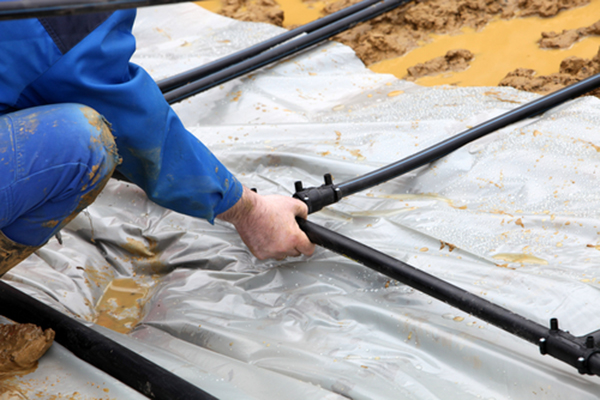Is Geothermal Air Conditioning Right For You?

Can a heat source from the ground really save you on heating and cooling costs? Find out the benefits of geothermal air conditioning, how it works, and what to consider.


Can a heat source from the ground really save you on heating and cooling costs? Find out the benefits of geothermal air conditioning, how it works, and what to consider.
Tired of paying high energy bills? Want to switch to a quieter, more energy-efficient and eco-friendly heating and cooling system? Geothermal may be the solution for you.
A geothermal system consists of two primary components: a ground source (hence geothermal) heat pump situated inside your house and a closed loop of plastic tubing or pipe that is buried in the ground exterior around your home. The pump circulates a fluid mixture — usually water and antifreeze — through the loop. As the fluid circulates, it acts as a heat exchanger, either dispersing or collecting heat from its immediate surroundings.
Geothermal HVAC systems do not convert chemical or electrical energy. Instead, they simply move heat. Outside temperatures fluctuate dramatically during the year. However, because of the insulating properties of the earth, temperatures 4 – 6 feet below ground stay fairly consistent year-round. (Depending on where you live, these average underground temperatures can range from between 45 degrees and 75 degrees Fahrenheit.)
If you’ve ever gone spelunking or spent time in a cave — you know how cold subterranean regions can be. In the winter, the ground temperature is typically warmer than the air above it. The geothermal system absorbs heat from the earth and transfers it into your house. In the summer, when the ground temperature is typically cooler than the air above it, the heat pump draws the heat out of your house and back into the ground. In other words, the ground is a heat source in the winter and a heat sink in the summer.
Thinking about coverage?
Sounds like a plan. Find the warranty that fits you best.
Geothermal systems offer several benefits.
Ground source heating and cooling can be used almost anywhere in the United States. However, your actual ground loop installation options will be determined in part by the composition of the soil, as well as the hydrological conditions in your area.
If you’re building a new home or replacing your old heating and air conditioning system, you may want to consider a geothermal system for its longevity, energy efficiency and eco-friendliness. And a home warranty from a reputable provider like American Home Shield can cover repairs to your geothermal heating and cooling system in the unlikely event they’re required.
Related: 5 Alternative Ways to Heat Your Home
Explore how our home warranty plans can help keep your A/C in working order all season long.

AHS assumes no responsibility, and specifically disclaims all liability, for your use of any and all information contained herein.
Have a plan for your home when things don't go according to plan
Shop Home Warranties